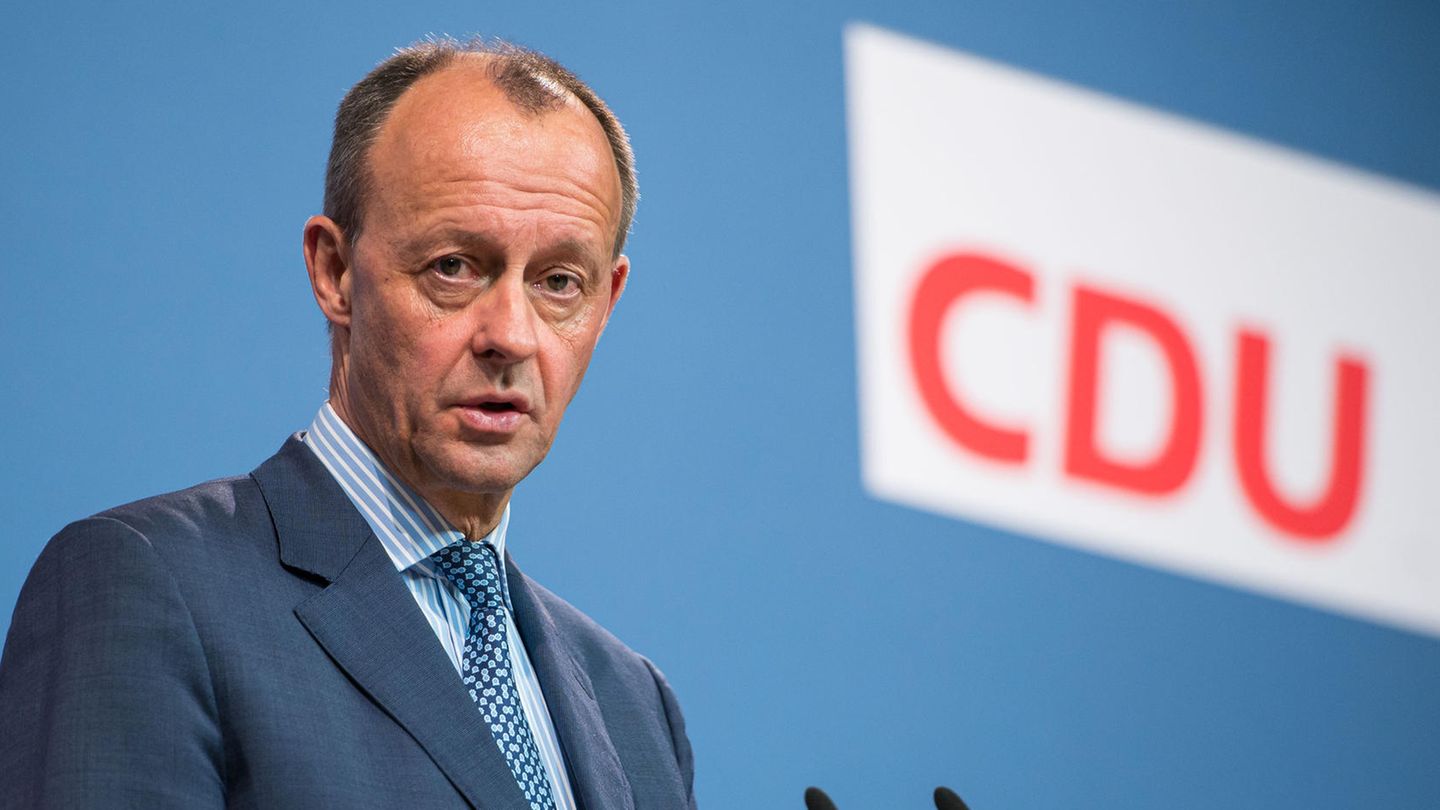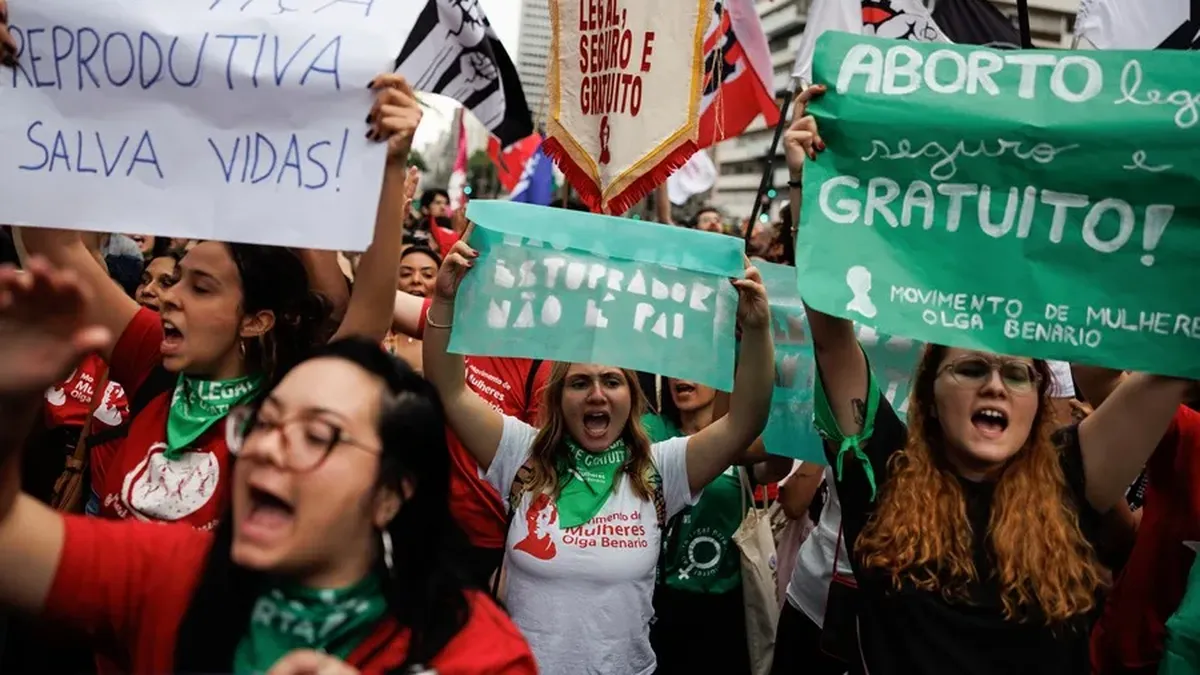The leaders of the federal CDU wanted nothing to do with the Saar election beforehand, and certainly not after the disastrous result. But the media comments don’t let CDU leader Friedrich Merz get away that easily.
Almost manically, the leaders of the parties swore on Sunday evening that the elections in Saarland would follow such regional laws that conclusions about the federal government or the upcoming, much more important state elections are prohibited. Especially in the CDU, the historical defeat in the Saar was verbally trimmed. But the commentators, especially CDU leader Friedrich Merz, don’t want to make it that easy. An election result from Saarbrücken has already set a nationwide trend. At that time, the SPD felt a tailwind, but then the “Schulz train” derailed in Saarbrücken. And now? Responses of commentators from German media.
“Badische Zeitung” (Freiburg)
The most important factor in the landslide victory of the Social Democrats was undoubtedly top woman Anke Rehlinger – or better: the trust that the previous Vice Prime Minister enjoys among the people. In contrast to the pale CDU man Tobias Hans. Annegret Kramp-Karrenbauer inherited the office of Prime Minister when she moved to federal politics in 2018. Since then, however, Rehlinger has filled the role of carer with a heart. State elections have often been personal elections recently, this trend from the pandemic is continuing (…). (…) However, the signal effect of the election remains limited. Olaf Scholz is somehow strengthened, his traffic light partners are not – and the pressure is growing on the Merz-CDU. But only when the SPD repeats its victory in Schleswig-Holstein and North Rhine-Westphalia in May will it become a trend.
“Ludwigsburg District Newspaper”
Now the SPD will try to derive momentum from the victory in Saarbrücken for the three upcoming state elections in Schleswig-Holstein, North Rhine-Westphalia and Lower Saxony. And of course also for SPD Chancellor Olaf Scholz. But the Saarland election is not particularly representative either for the other states or for the federal government. The absurd inner-party difficulties in the Left, Greens, FDP and AfD made the election curious.
“FAZ”
Whether economic policy, education policy or internal security – the Union has also gambled away its traditionally large credit in the Saar. There is no indication that the citizens could quickly rehabilitate it – a Merz in the Bund is no more than the swallow that has not yet made a summer. The fact that the new CDU chairman didn’t even show up in Saarland in the week before the election says a lot about the party’s ability to campaign there and there. (…) In North Rhine-Westphalia, on the other hand, the Social Democrats will do everything in their power to make the disgrace of 2017 forgotten and to put an end to Armin Laschet’s successor Hendrik Wüst (CDU) like Hans in Saarland. From Berlin, the SPD and the Greens should leave no stone unturned to present their comrades on the Rhine and Weser in the best possible light. After all, it is also important not to let the trees of the Free Democrats in Düsseldorf grow any further.
“Berlin newspaper”
The federal CDU has already built ahead in the last few days and made it clear that the election there has characteristics that are typical of the country. That means: Tobias Hans is solely to blame. But it is not that simple. From around 40 percent down to 27 – that’s a swatter that sounds as far as Berlin. What is the renewal of the Union doing now that one of its prime ministers is history again? The Saarland election is the first after the Bundestag elections last September – it’s difficult not to take that as a signal, especially since there are more elections this year. The first state election of the year clearly suggests: advantage SPD.
“Handelsblatt” (Dusseldorf)
Friedrich Merz was not up for election in Saarland. But on Sunday he got his first scratch. The expectations of the new CDU party leader were huge, and they have not been fulfilled. There was no sign of a Merz bonus. His CDU has literally crashed in the smallest area of the republic. No wonder that in the last few weeks no one from the top of the federal government has been on site. Neither does Merz.
“Westphalian News” (Münster)
For the federal CDU, the massive defeat comes at the wrong time. First they lost the federal elections, then the leadership team was replaced: completely renewed, as the party is, they wanted to send a first signal with the Saar elections – and send: We understood, we’re back, we want to govern. That went terribly wrong. The defeat was not unexpected. In Berlin, CDU General Secretary Mario Czaja had already lost the election for his party last week. Blame: the state party and its top staff. So that nothing sticks to the new hope Friedrich Merz. support is different.
ZDF
<x-embed class=”js-embed embed u-typo u-typo–article-text” consent=”pending” privacy-link=”https://www.stern.de/datenschutzbestimmungen-4541848.html” privacy-settings-link=”https://www.stern.de/politik/deutschland/javascript:window._sp_.loadPrivacyManagerModal(237312)” srcdoc=’
Anke Rehlinger’s success sends signals to federal politicians – and reveals the Union’s greatest shortcoming, comments ZDF editor-in-chief Peter Frey.#ltwsl #Saarlandelection pic.twitter.com/vlS2Nv2Ju8
— ZDFheute (@ZDFheute) March 27, 2022
‘ vendor-id=”5e71760b69966540e4554f01″ vendor-name=”Twitter”>
“The Mirror” (Hamburg)
(…) four years ago, a kind of trend emerged with the Saarland elections, after the surprisingly clear re-election of the then CDU Prime Minister Annegret Kramp-Karrenbauer for the Christian Democrats, who eventually settled in Schleswig-Holstein and North Rhine-Westphalia recaptured the state chancellery. North Rhine-Westphalia in particular is of outstanding importance: Due to the size of the state and its population, the election is considered a kind of mini federal election, and CDU leader Merz himself comes from Westphalia. In any case, the chairman and the party leadership are suddenly under pressure.
“New Osnabrück Newspaper”
With some distance, it becomes clear at what point an election is finally lost. For Armin Laschet (CDU), it was laughing at the wrong time. For Tobias Hans (CDU), it must have been the moment when his fuel price mobile phone video went online. At the latest, Hans has disqualified himself. The survey values were not outstanding before. But the mobile phone video was probably the nail in the coffin of the CDU campaign: with a noble Audi in the background, Hans posed in front of a gas station and awkwardly complained about the high prices at the pump. Of course, such moments do not alone determine the outcome of an election. But they illustrate what was fundamental.
“The New Day” (Willows)
For the CDU chairman Friedrich Merz, the performance of his party in Saarland is a clear failure. If he does not want to remain a short-term chairman of the CDU – like Annegret Kramp-Karrenbauer from Saarland or Armin Laschet from Rhineland – then his party must win the next two state elections – in May in Schleswig-Holstein and North Rhine-Westphalia.
<x-embed class=”js-embed embed u-typo u-typo–article-text” consent=”pending” privacy-link=”https://www.stern.de/datenschutzbestimmungen-4541848.html” privacy-settings-link=”https://www.stern.de/politik/deutschland/javascript:window._sp_.loadPrivacyManagerModal(237312)” srcdoc=’
‘ vendor-id=”5fbbda5b6eae2727f61d3fbd” vendor-name=”dpa infocom”>
“The Time” (Hamburg)
Merz was virtually invisible in Saarland. At the beginning of March he had an appearance there on the occasion of a parliamentary group meeting. Since then he has not been seen again. The CDU’s official reason why he was missing in the final sprint sounds almost cute: Merz was very busy because of the budget week in the Bundestag, the same was true for Czaja, who also apologized to the Saar. On the other hand, even the Chancellor could himself, Olaf Scholz, to travel to Neunkirchen to support Anke Rehlinger between the Putin phone calls, the government declaration and the NATO summit. It is more likely that Merz intentionally avoided Saarland. That he was worried that the unsuccessful election campaign could rub off on him. (…) The polls were bad, the prime minister unpopular. But is that why you make yourself thin so easily as a party leader? Do you deny your party colleagues your support just because the odds are poor? That was not well received by some in the CDU either.
“Southwest Press” (Ulm)
After 13 state elections in a row, a kind of political law applied: Regardless of the political weather, the incumbent wins. The previous head of government of the Saarland, Tobias Hans, did not succeed. The voters did not trust him to solve the difficult economic policy structural issues. Anke Rehlinger (SPD), who has been a kind of cheerfully patent substitute mother of the country for years, has benefited from this. The crisis of another party, namely the left, was particularly beneficial to her.
“Süddeutsche Zeitung” (Munich)
Above all, not only Sunday, but the weekend as a whole showed where the CDU’s deeper problems lie: it failed again with a top candidate who couldn’t see what he stood for, what he thought was right and wrong. Perhaps the most important thing the people expect from their politicians at this time is that they translate conviction into political action – and not try what might and might not work depending on polls or elections. Although you can gradually save yourself the expression “politician” in the case of the CDU: on Saturday Julia Klöckner handed over the chair to Christian Baldauf in Rhineland-Palatinate. This means that men are now leading the Union in all federal states. Their remaining prime ministers are Daniel, Hendrik, Markus, Michael, Reiner and Volker (who will soon be handed over to a Boris), the surnames point to a German background since time immemorial. If nothing changes, this is another factor that will make things very difficult for the Union in the future.
Source: Stern
David William is a talented author who has made a name for himself in the world of writing. He is a professional author who writes on a wide range of topics, from general interest to opinion news. David is currently working as a writer at 24 hours worlds where he brings his unique perspective and in-depth research to his articles, making them both informative and engaging.




